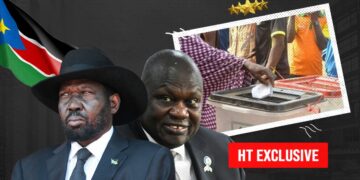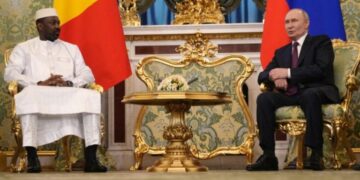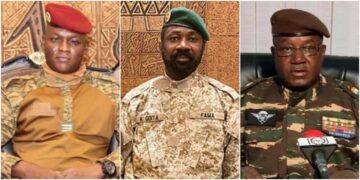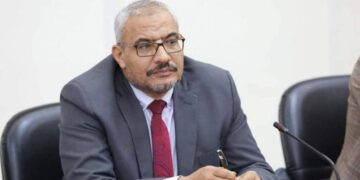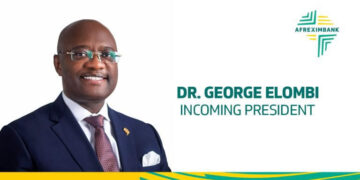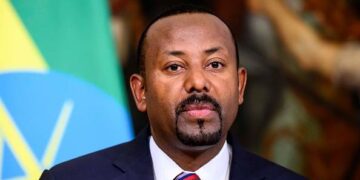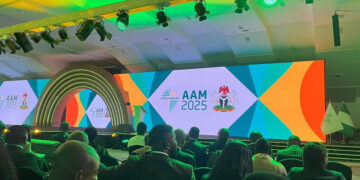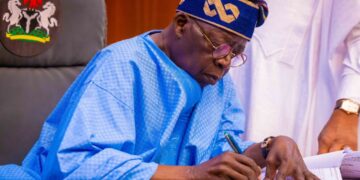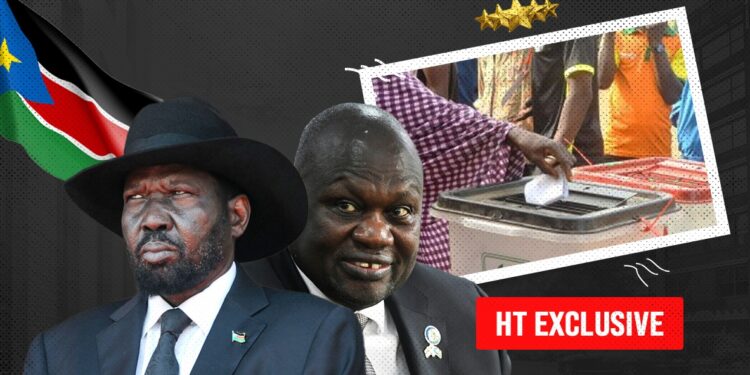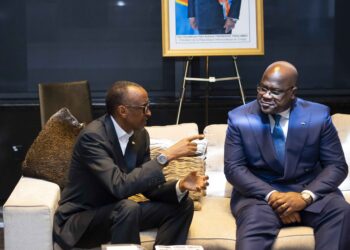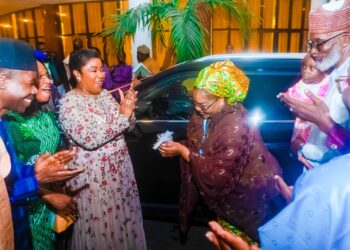By John Ikani
Heritage Times [HT] had earlier reported that South Sudan is on course to hold successful general elections in December this year, despite some quarters, including the United Nations, casting doubts about its preparedness.
However, there are heightened fears in the Central African nation that elections scheduled for December 2024 could fail to take place as earlier planned.
This is after First Vice President Riek Machar wrote a letter to a government commission on March 18, seeking the full implementation of the 2018 peace agreement before elections are held in South Sudan.
Machar in his letter said that “months to the December election, the voter registration records remain unavailable, and that adequate security for free and fair polls is yet to be guaranteed.”
The First Vice President suggested “a revision of the 2018 peace agreement or fresh dialogue before the polls can be held,” a call likely to delay the elections yet again if heeded.
Machar copied his letter to senior government officials, EGOT’s special envoy to South Sudan and the African Union representative to South Sudan.
Did you know?
South Sudan is yet to hold its first general election after seceding from Sudan in 2011. Regular armed conflicts have hampered efforts to hold elections, resulting in the signing of several transitional peace agreements.
During the signing of the 2018 peace deal, the rival groups, one led by Kare and the other by Mashar, signed that the transitional period would expire in two years’ time, but the date was changed on two subsequent occasions.
Following the revision, the transitional rule was to end in February 2023 before it was changed again to February 2025. The extension of the transitional government’s tenure was to allow South Sudan to develop electoral laws, unify rival factions, and establish an electoral body to conduct elections.
Political observers say elections in South Sudan will open a new frontier of governance, including stronger institutional structures and reforms that will improve the lives of South Sudanese citizens.
So far, only 72-year-old President Salva Kiir has expressed interest in seeking election in December this year.
What power does Machar wield in South Sudan?
South Sudan currently has five Vice Presidents, as outlined in a power-sharing agreement. The arrangement was established to foster inclusivity and representation among various political factions within the country.
Notably, the President -Salva Kirr and the 5 vice presidents belong to factions of the Sudan People’s Liberation Movement (SPLM) party. The SPLM-IG, or SPLM in Government is the faction led by President Salva Kiir.
The Vice Presidents include:
1. Riek Machar Teny Dhurgon – First Vice President (SPLM/A-IO)
2. James Wani Igga – Vice President (SPLM) 5
3. Taban Deng Gai – Vice President (SPLM-IO) 5
4. Rebecca Nyandeng Garang – Vice President (SPLM) 5
5. Simon Gatwech Dual – Vice President (SPLM/A-IO) 6
Typically, the President holds executive authority, while the First Vice President’s role involves overseeing the implementation of the peace agreement, participating in decision-making processes, and representing his political faction within the government.
However, tensions and disagreements between Machar and Kiir were not uncommon, reflecting broader challenges in the governance and political landscape of South Sudan.
No going back on planned election – South Sudan Govt
Critics and the ruling faction of government have, however, accused Mashaar of “election phobia”. Likewise, President Kiir has rejected calls to adjust the election calendar.
In a statement by Presidential Affairs Minister Bangasi Joseph Bakosoro, Kiir said “the elections should be held as planned and that there won’t be an extension of the current transitional government after the expiry of the 2018 peace agreement.”
Earlier in March, South Sudan’s Foreign Affairs Minister, James Morgan expressed optimism that most of the issues raised over his country’s election preparedness will be resolved before the polls are held in December this year.
READ ALSO: Mozambique To Host Africa’s Industry Experts At 10th Mining & Energy Conference
“The people of South Sudan want elections, and we shall have them in December 2024,” Morgan told TRT Afrika.
Even as President Kiir’s side insists that elections will be held in December, the ruling faction says it is open to dialogue with Machar’s side on how election conditions can be improved for the South Sudanese people.
What another election delay portends
Another delay in holding South Sudan’s elections could have significant repercussions for the country, the Central African region, and Africa as a whole.
With fears already mounting about the potential failure of the scheduled December 2024 elections, there’s a risk of prolonged political instability in South Sudan, as the transitional period continues without a clear path forward.
This instability could exacerbate existing tensions and hinder progress towards sustainable peace, potentially leading to increased violence and humanitarian crises within the country.
Moreover, the repercussions could extend beyond South Sudan’s borders, affecting neighbouring countries in the Central African region. This could manifest in heightened refugee flows, cross-border conflicts, and economic disruptions, impacting regional stability and development.
In a broader context, another setback in South Sudan could undermine efforts for democracy and stability across the African continent. It may erode confidence in regional and continental organizations’ ability to effectively mediate conflicts and promote peace, posing challenges to Africa’s overall progress.
